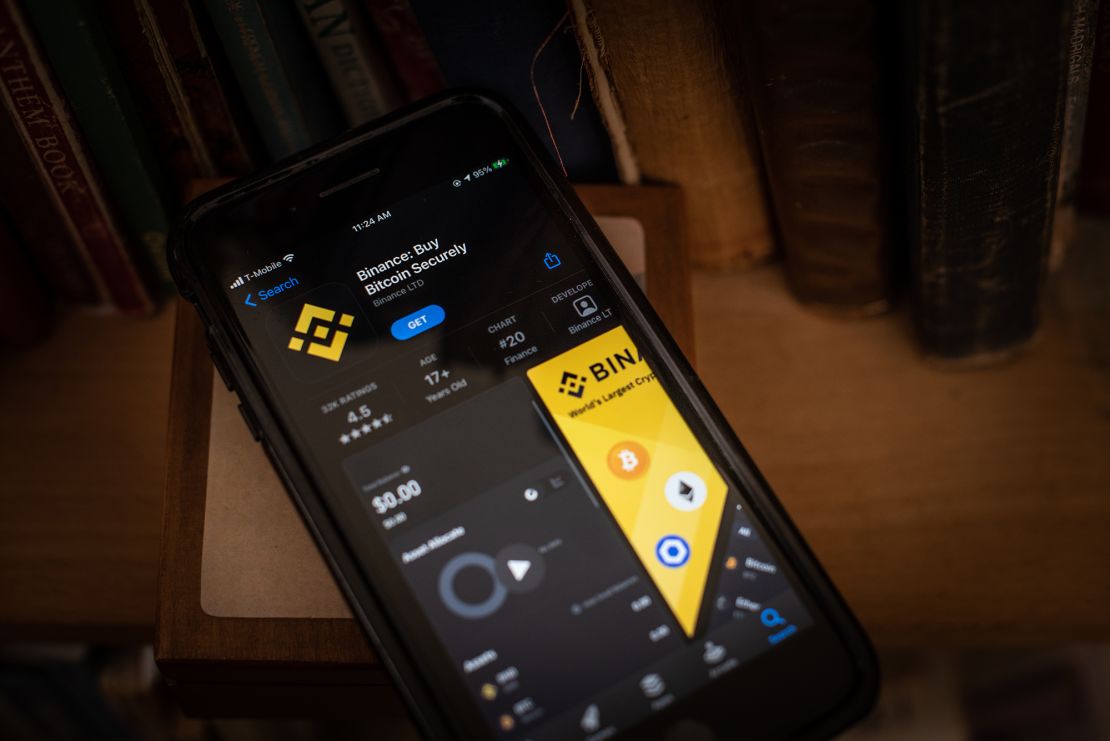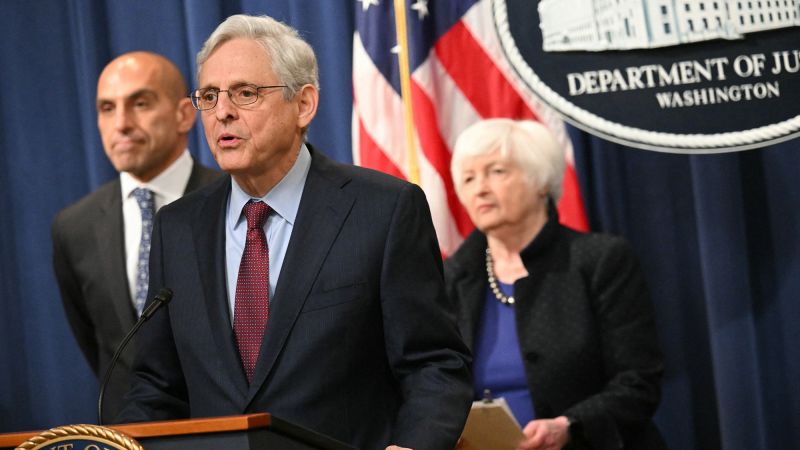new york
CNN
—
The U.S. government has sent a clear message to the cryptocurrency world, a market worth about $1.4 trillion.
Just as crypto investors were recovering from the historic conviction of Sam Bankman Freed, the disgraced founder and former CEO of failed crypto exchange FTX, US authorities have yet again demonstrated their force against criminal activity surrounding cryptocurrencies.
Zhao Changpeng, the billionaire founder of Binance, the world's largest cryptocurrency exchange, pleaded guilty on Tuesday to failing to maintain an effective anti-money laundering program and allowing all sorts of bad actors to use the platform to move funds.
Here are five takeaways from the largest fine ever levied against a financial services company in U.S. history, which also happens to be a cryptocurrency company.
Both Zhao and Bankman Freed were widely considered the faces of the cryptocurrency industry, and Zhao's guilty plea and Bankman Freed's conviction mean that respectable players in the industry will have to make a more compelling case to prove to skeptics that the two men were the exception, not the rule.
Following Tuesday's news, Coinbase CEO Brian Armstrong took the opportunity to distinguish his own crypto exchange from Binance, which has admitted to engaging in anti-money laundering, unauthorized transfers and sanctions violations.
“Since founding Coinbase in 2012, we have taken the long-term view, and we knew that to become a generational company that could stand the test of time, we needed to embrace compliance,” Armstrong said in a post on X on Tuesday afternoon.
“Today's news reaffirms that doing it the hard way was the right decision. We now have the opportunity to begin a new chapter for our industry,” he added.
At the same time, government agencies that oversee cryptocurrency regulation and compliance don't want people to forget about Bankman Freed and Chao.
“Over the past month, the Department of Justice has successfully indicted the CEOs of two of the world's largest cryptocurrency exchanges in two separate criminal cases,” Attorney General Merrick Garland said at a press conference on Tuesday. “The message here is clear: Using new technology to break the law doesn't make you a disruptor. It makes you a criminal.”

Cryptocurrencies fell on Tuesday as investors digested the latest regulatory news from Washington, D.C., but recovered strongly by Wednesday.
Binance Coin initially fell about 6% after the U.S. Department of Justice announced it had indicted Zhao following a multiyear investigation into Binance. By Wednesday morning, prices were up 3.5%.
Other cryptocurrencies also took a hit on Tuesday as a larger federal crackdown extended to cryptocurrency companies including Kraken and Tether.
Bitcoin fell about $420, or 1.1%, to $37,071, while Ethereum fell $40, or 2%, to $1,997 per coin.
By Wednesday, both Bitcoin and Ethereum had recovered, with Bitcoin up 2.4% and Ethereum up 5%.
So what causes this variation?
Several reports late Tuesday suggested that Zhao's settlement with the Justice Department could allow him to retain most of Binance's shares, raising hopes among investors who were also eagerly awaiting an end to the lengthy investigation.
Overall, it's been a good year for cryptocurrencies, with Bitcoin up about 120% year-to-date, and Ethereum up about 70% in the same period.
Binance's agreement with the government requires the company to cease operations in the United States.
On Tuesday evening, people living in the United States saw a notice on the Binance.com site stating that the service was “not available in your country or region,” but with some finer details.
“If you reside in the United States or certain US territories, Binance.US is a US-regulated platform where you can buy, trade, convert and stake cryptocurrencies with low fees,” the notice continues.
According to a post on the site, Binance.US is a subsidiary of Binance that was established in 2019 to “serve US consumers and comply with US regulations.”
Treasury officials said Binance.US is not affected by Tuesday's announcement because it is a registered money services company, meaning people in the U.S. can still buy and sell cryptocurrencies under the Binance umbrella.
Tuesday's announcement is a clear indication of the federal government's tough stance on illegal activities involving cryptocurrencies. Simply put, from the Securities and Exchange Commission to the Treasury Department, the federal government is not taking any shortcuts.
This week, the SEC sued another cryptocurrency exchange, Kraken, for operating as an unregistered securities exchange. The SEC's lawsuit also alleges that the exchange commingled customer assets with its own holdings.
This is not the first time the SEC has sued Kraken. In fact, it follows the SEC's lawsuits against Bittrex and Coinbase. The SEC's lawsuit against Binance for violating investor protection laws is pending.

Despite some adverse rulings this year, the SEC is expected to continue to take crypto companies to court and aggressively crack down on them.
But Tuesday's big announcement made it clear that it's not just the SEC trying to stop cryptocurrency misconduct, it's the entire federal government.
This includes the Department of Justice and the Commodity Futures Trading Commission., and the Treasury Department. The Department of Justice even has a National Cryptocurrency Enforcement Team that actively identifies and investigates criminal cases involving digital assets.
“While criminal and civil enforcement actions are subject to different legal standards, this joint effort represents the whole-of-government approach we are taking to combat corporate crime,” Garland said Tuesday.
U.S. authorities already have sophisticated regulatory tools at their disposal to root out financial crimes, including laws criminalizing money laundering and bank fraud.
That’s exactly how the federal government secured the first-ever corporate settlement with a cryptocurrency exchange.
“Both today's actions and past cases mean that we will be relentless in using every tool we can deploy today against those who seek to use technology in ways that abuse these platforms… or [that] “We cannot prevent these platforms from being used to commit illegal activity,” Deputy Attorney General Lisa Monaco said at a press conference on Tuesday.
But officials suggested there was room for new restrictions.
Calls for “regulatory clarity” are not new, and new crypto regulations could help both investors and law enforcement distinguish between legitimate crypto products and criminal facades.
It is unclear when and how comprehensive cryptocurrency regulation might occur. One avenue would be through rulemaking at the agency level, either by the SEC or CFTC, which would be subject to judicial review if challenged in court. Another avenue would be through enactment by Congress.
“I've been advocating for closing some of these gaps, particularly with regard to commodity tokens, and I think if we can do that, with the help of Congress, of course, we can prevent these actions from happening and avoid having to be here after the fact,” CFTC Chairman Rostyn Benham said Tuesday.

